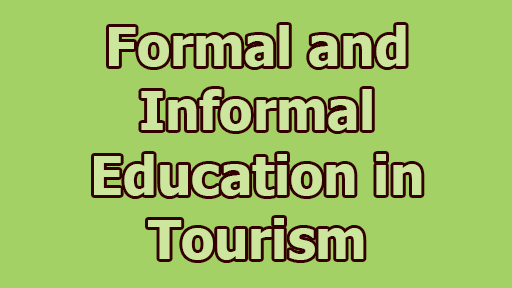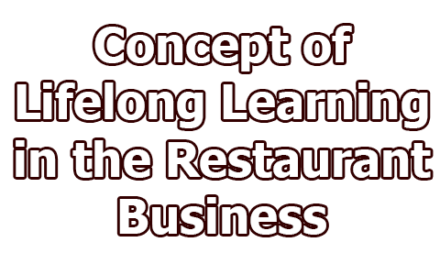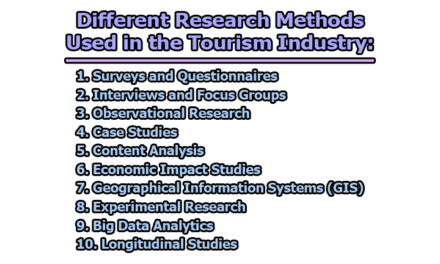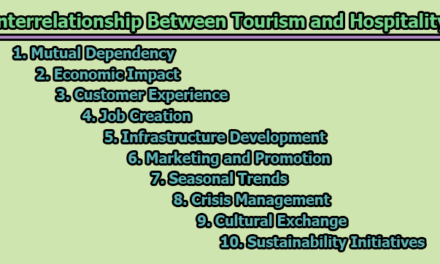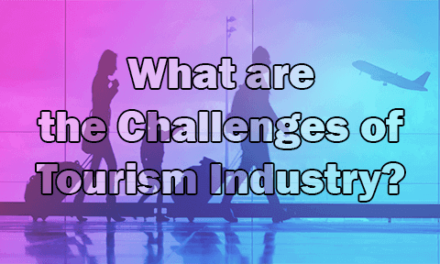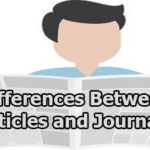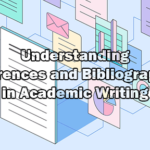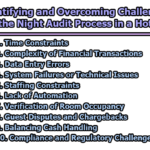Formal and Informal Education in Tourism:
Tourism is a dynamic and rapidly growing industry that plays a significant role in the global economy. It encompasses a wide range of activities, including travel, hospitality, leisure, and cultural experiences. To succeed in the tourism industry, individuals require a combination of knowledge, skills, and competencies. Education is a crucial factor in preparing individuals for careers in tourism, and it can be categorized into two main forms: formal and informal education. Formal education typically involves structured, institutionally recognized programs, such as degrees and diplomas, while informal education is often acquired through non-structured, experiential learning. Both forms of education have their merits and drawbacks and play complementary roles in preparing individuals for successful careers in tourism. This article explores the nuances of formal and informal education in tourism, highlighting their respective characteristics, advantages, and challenges.
1. Formal Education in Tourism:
Formal education in tourism is characterized by structured, organized programs offered by accredited institutions, such as universities, colleges, and vocational schools. It includes a wide range of academic degrees and certificates, each designed to provide students with a solid foundation in tourism-related knowledge and skills.
1.1 Types of Formal Education in Tourism:
- Bachelor’s Degrees: Bachelor’s programs in tourism and hospitality management are among the most common formal education options in this field. These programs typically cover a broad range of topics, including tourism marketing, hotel management, event planning, and sustainable tourism. Students receive a comprehensive education, equipping them with both theoretical knowledge and practical skills.
- Master’s Degrees: For individuals seeking more specialized knowledge and leadership roles in tourism, master’s programs in areas like tourism management, destination management, or sustainable tourism are available. These programs delve deeper into specific aspects of the industry and often require a thesis or research project.
- Doctoral Degrees: Doctoral programs in tourism provide the highest level of formal education in this field. They focus on research, theory development, and in-depth exploration of specialized topics. Graduates of doctoral programs often pursue careers in academia, research, or high-level management positions.
- Certificates and Diplomas: Shorter-term formal education options, such as certificates and diplomas, are available for individuals seeking to gain specific skills or knowledge in a shorter timeframe. These programs may focus on areas like tour guiding, event planning, or hotel operations.
1.2 Advantages of Formal Education in Tourism:
- Credibility and Recognition: Formal education in tourism is universally recognized and respected by employers in the industry. Graduates from accredited programs carry a certain level of credibility, making it easier to secure employment.
- Comprehensive Curriculum: Formal education programs provide a structured and comprehensive curriculum that covers a wide range of topics. This helps students gain a broad understanding of the tourism industry.
- Networking Opportunities: Students in formal education programs often have the opportunity to network with peers, professors, and industry professionals. These connections can be valuable for future career opportunities.
- Access to Resources: Educational institutions provide access to libraries, research resources, and industry databases that can be crucial for learning and research.
- Career Advancement: Formal education can open doors to higher-paying and more prestigious positions within the tourism industry. It can also provide a pathway for career changes and advancement.
1.3 Challenges of Formal Education in Tourism:
- Cost: Formal education can be expensive, especially at the bachelor’s and master’s levels. Tuition fees, textbooks, and other expenses can create a financial burden for students.
- Time Commitment: Completing a formal education program in tourism requires a significant time commitment, which may not be feasible for everyone, especially for those who need to work while studying.
- Limited Practical Experience: While formal education programs provide a strong theoretical foundation, they may not offer as much hands-on experience as informal learning methods.
- Evolving Industry: The tourism industry is constantly evolving, and formal education programs may struggle to keep pace with the latest trends and technologies.
2. Informal Education in Tourism:
Informal education in tourism encompasses a wide range of learning experiences that occur outside the traditional classroom setting. It often involves hands-on, experiential learning and can be acquired through various means, including on-the-job training, self-study, workshops, mentorship, and online resources.
2.1 Types of Informal Education in Tourism:
- On-the-Job Training: Many individuals working in tourism start their careers by gaining practical experience in entry-level positions. This hands-on training allows them to acquire industry-specific skills while earning a salary.
- Self-Study: Informal learners in tourism often engage in self-study by reading books, articles, and online resources related to the industry. This allows individuals to explore specific topics at their own pace.
- Workshops and Seminars: Tourism-related workshops, seminars, and conferences provide opportunities for informal learning. These events cover a range of topics, from marketing strategies to sustainable tourism practices.
- Mentorship: Mentorship programs connect experienced professionals with newcomers in the industry. This one-on-one guidance can be invaluable for skill development and career advancement.
- Online Resources: The internet offers a wealth of free and paid resources, including webinars, podcasts, and video tutorials, which individuals can access to expand their knowledge in tourism.
2.2 Advantages of Informal Education in Tourism:
- Practical Experience: Informal education emphasizes practical skills and real-world experience, making it highly relevant to the tourism industry.
- Flexibility: Informal learning methods are often flexible and can be tailored to individual needs and schedules.
- Cost-Effective: Many informal education resources, such as online articles and webinars, are available at little to no cost, making them accessible to a wide audience.
- Current Information: Informal learners can stay updated with the latest industry trends and developments, as informal resources are often more responsive to changes in the field.
- Career Progression: Informal education can lead to career advancement by providing individuals with specialized skills and knowledge that are directly applicable to their roles.
2.3 Challenges of Informal Education in Tourism:
- Lack of Structure: Informal education lacks the structured curriculum of formal programs, which may make it challenging for individuals to gain a comprehensive understanding of the industry.
- Limited Recognition: Informal learning experiences may not carry the same level of recognition and credibility as formal degrees and certificates, potentially affecting career opportunities.
- Self-Motivation Required: Informal learners must be self-motivated and disciplined to seek out and complete relevant resources and experiences.
- Variable Quality: The quality of informal education resources can vary widely, and not all online content is accurate or reliable.
3. Combining Formal and Informal Education in Tourism:
While formal and informal education in tourism each have their strengths and weaknesses, they can complement each other effectively to provide a well-rounded education and career preparation. Here are some ways in which individuals can combine both forms of education:
3.1 Blended Learning: Some educational institutions offer blended programs that combine traditional classroom instruction with experiential learning opportunities. This approach allows students to benefit from both formal education and hands-on experience.
3.2 Internships and Practical Training: Students pursuing formal degrees can seek internships and practical training opportunities during their studies. These experiences provide valuable real-world exposure and enhance their resumes.
3.3 Continuing Education: Even after completing formal education, individuals can continue to engage in informal learning to stay updated with industry trends and expand their skill set.
3.4 Mentorship Programs: Mentorship programs connect experienced professionals with learners seeking guidance. This informal learning method can provide practical insights and career advice.
3.5 Professional Associations: Joining professional associations related to tourism can offer access to industry-specific resources, networking events, and opportunities for informal learning.
3.6 Online Courses: Many universities and institutions offer online courses and certifications in various tourism-related subjects. These can be an accessible way to gain formal education while maintaining flexibility.
3.7 Skill-Specific Training: For individuals seeking to acquire specific skills, such as language proficiency or software proficiency, short-term courses and workshops can be an effective way to complement formal education.
4. Case Study: The Role of Education in Sustainable Tourism:
To illustrate the importance of both formal and informal education in the context of a specific tourism-related topic, let’s explore sustainable tourism as a case study.
Sustainable tourism involves minimizing negative impacts on the environment, local cultures, and economies while maximizing the benefits of tourism. Achieving sustainability in tourism requires a deep understanding of environmental conservation, community engagement, and responsible business practices.
4.1 Formal Education: Students pursuing formal degrees in tourism management or sustainable tourism can gain a solid theoretical foundation in sustainable tourism principles. They may take courses in environmental science, ethics, and policy development, preparing them for leadership roles in sustainable tourism initiatives. Additionally, formal education programs often include opportunities for research and fieldwork in sustainability.
4.2 Informal Education: Informal learners interested in sustainable tourism can complement their formal education with practical experiences. They may participate in volunteer programs focused on environmental conservation or community development. Attending sustainability-focused workshops, conferences, and webinars can provide valuable insights and connections in the field.
By combining formal education with informal learning experiences, individuals can develop a well-rounded understanding of sustainable tourism and contribute effectively to this important aspect of the industry.
In conclusion, formal and informal education in tourism each have their unique characteristics, advantages, and challenges. Formal education, offered by accredited institutions, provides structured curricula and recognized credentials, making it a solid foundation for careers in the tourism industry. However, it can be costly and time-consuming. Informal education, on the other hand, emphasizes practical experience, flexibility, and cost-effectiveness. It allows individuals to acquire industry-specific skills and stay current with industry trends. However, it may lack recognition and structure.
To maximize their career prospects and knowledge acquisition, individuals interested in tourism should consider combining both formal and informal education. Blending structured learning with hands-on experience, mentorship, online resources, and professional networking can provide a comprehensive education that equips individuals to thrive in the dynamic and ever-evolving tourism industry.
In an industry as diverse as tourism, where opportunities are vast and challenges are numerous, a holistic approach to education can empower individuals to become well-rounded, knowledgeable, and adaptable professionals ready to contribute to the industry’s growth and sustainability.

Former Student at Rajshahi University

